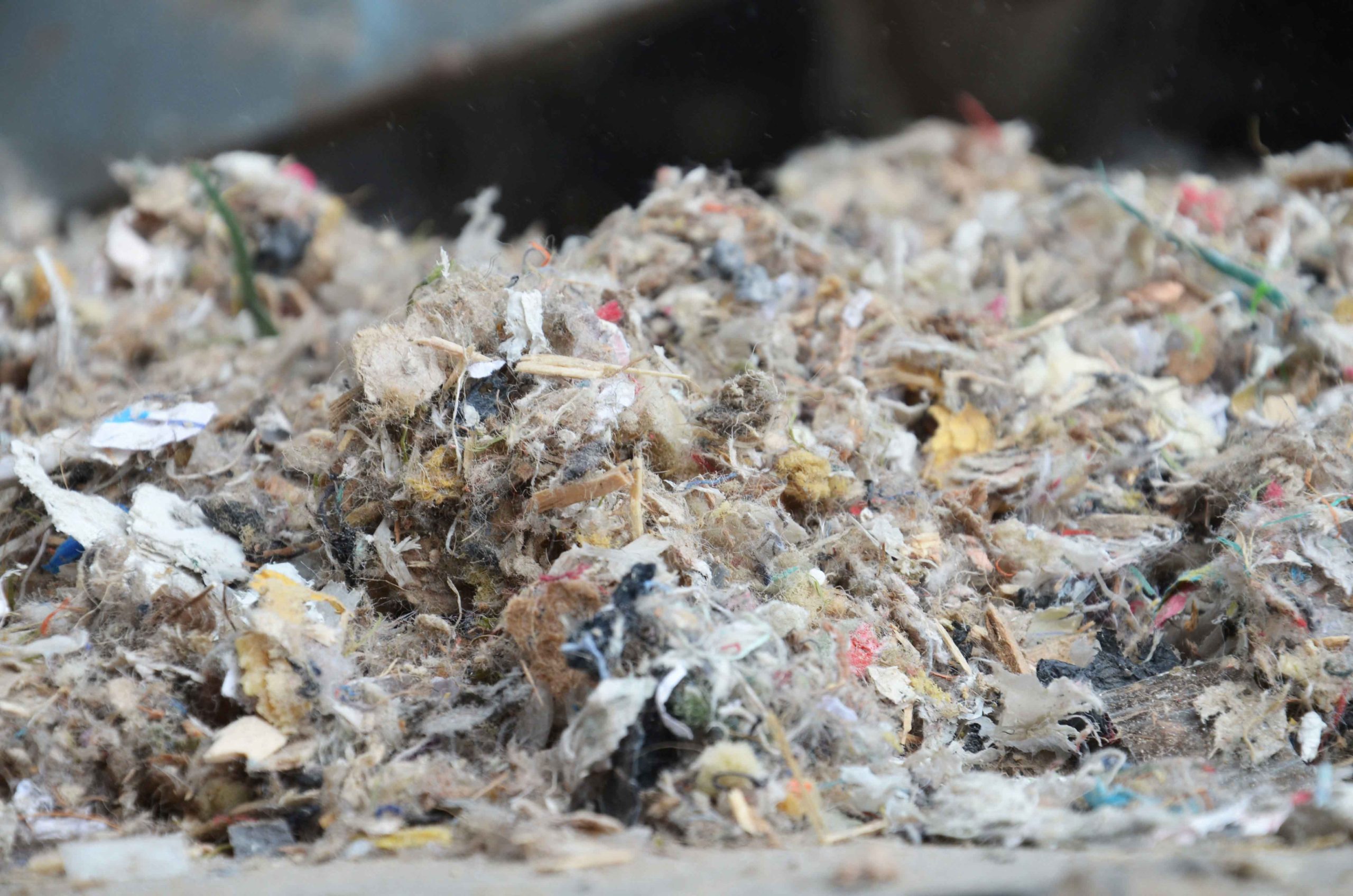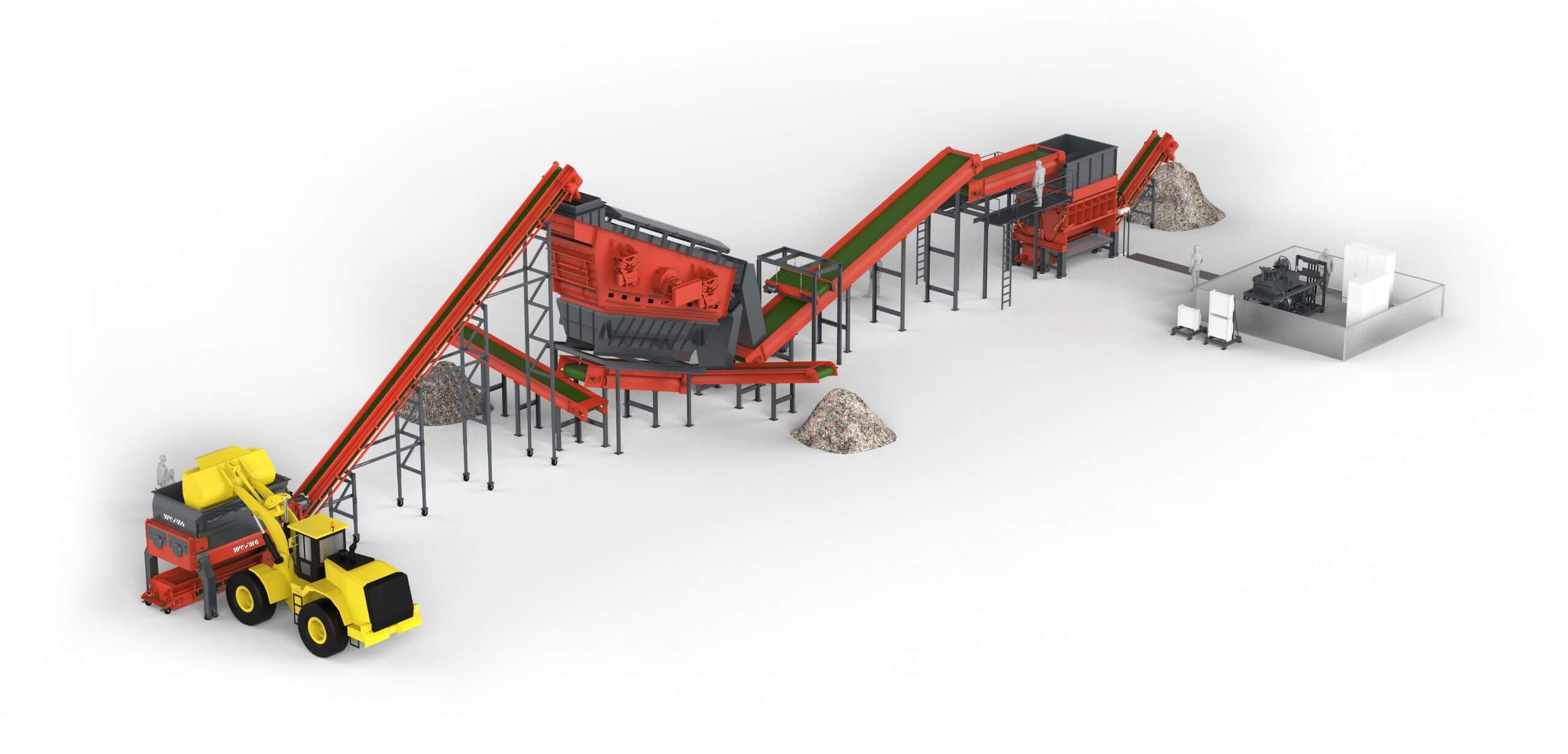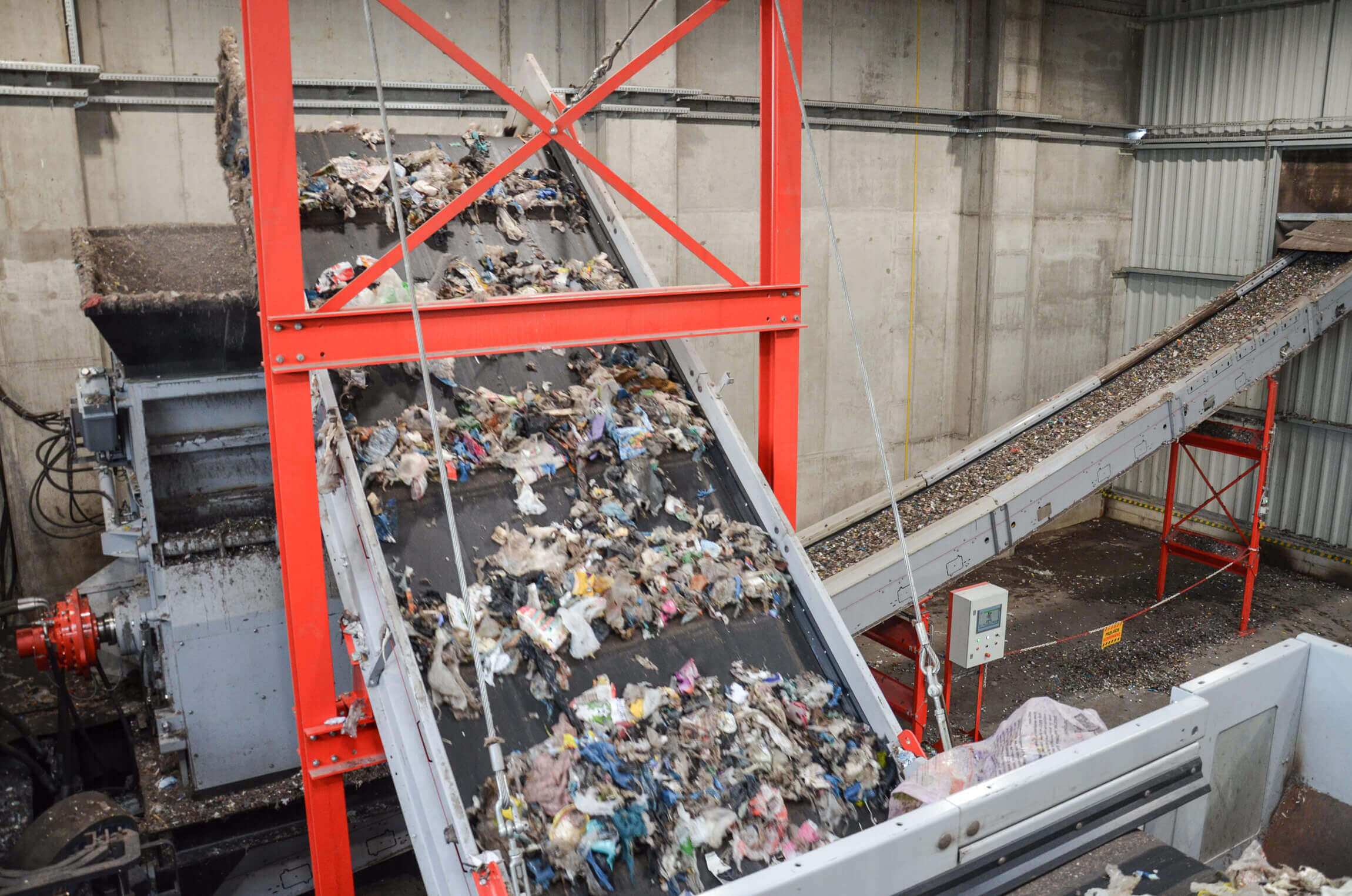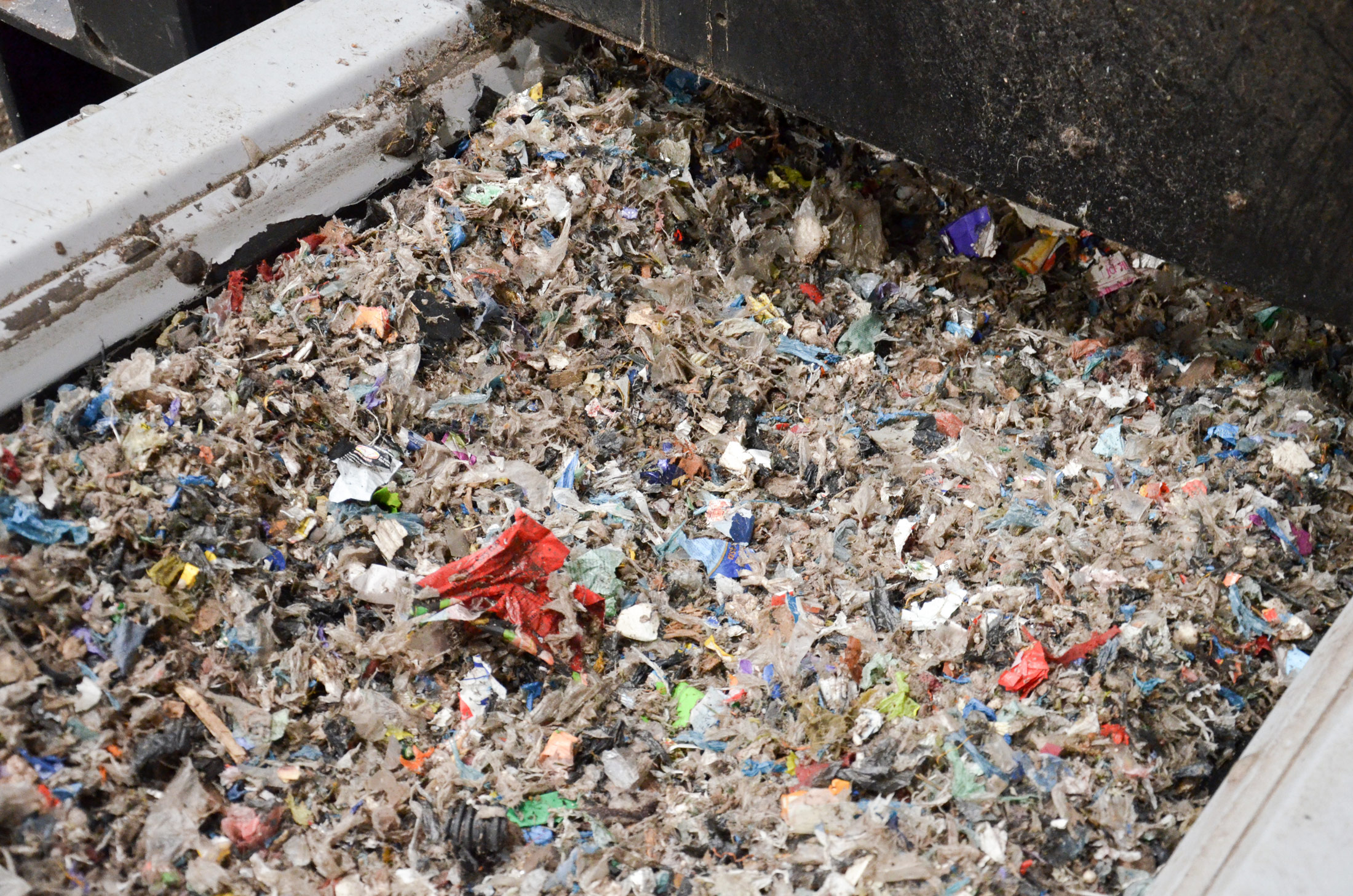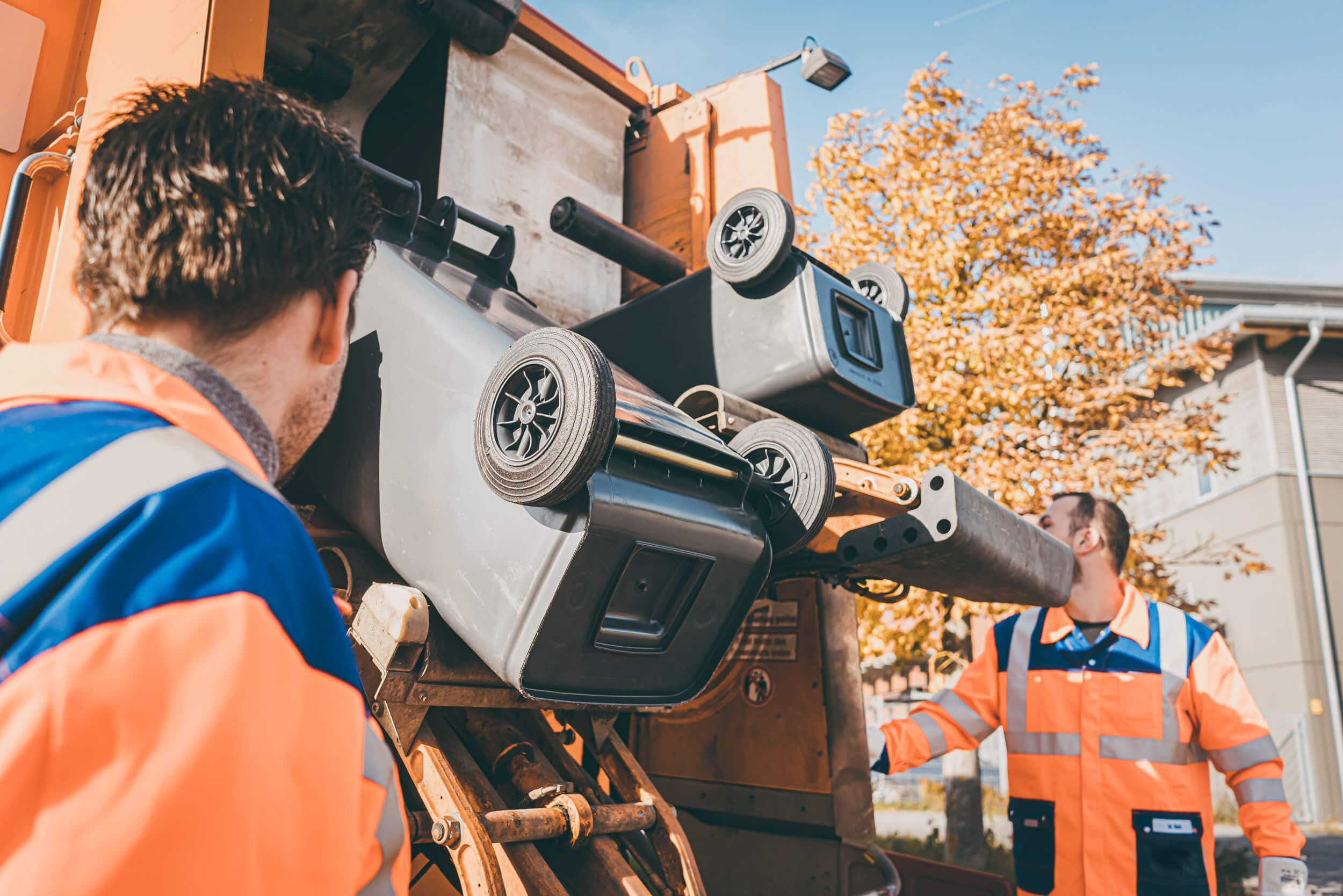
Shredders for Municipal Solid Waste (MSW) | Residual Waste from WEIMA
Information about industrial waste shredders and treatment of municipal solid waste | communal | residual | household waste
Residual waste from private households or similar places is anything but just waste – in most cases it's a veritable goldmine of recyclable materials. In Germany alone, more than 50 million tons of municipal waste are generated every year. Waste collection services collect more than 13 million tons of household waste, which still contains high proportions of plastics and paper, even though these materials should be disposed of separately. Particularly robust machines are required for the subsequent processing of all material fractions, as municipal waste is usually full of foreign materials such as stones and metals. WEIMA offers the right shredders for this first process step, shredding, with working widths of up to three meters, many heavy duty options and drive concepts specially designed for these applications. The result: safely and cleanly processed, homogeneous material streams.
Industrial (C&I) and municipal waste (MSW) shredding with a WEIMA S7.30 lift-up shredder in Korea
A WEIMA S7.30 lift-up single-shaft shredder with a hydraulic drive by Hägglunds Bosch Rexroth shreds various kinds of waste for the production of RDF at Daewon Recycling in Gimje, South Korea.
What types of waste are included in municipal | residual waste?
The composition of municipal or residual waste can vary greatly from region to region. In the United States in 2018, approximately 292 million tons of MSW were generated, according to the Environmental Protection Agency (EPA). Of that, 67% was paper and paperboard products, while 18.5% was comprised of plastic waste.
Source: EPA.gov
How is municipal | residual waste disposed of?
Residual waste garbage cans contain a wide range of recyclable materials and must be recycled by disposal companies in accordance with applicable recycling and waste management laws. For example, many plastics, paper and cardboard can be fed directly into the recycling loop after appropriate sorting. Contaminants/foreign materials are separated. The remaining residual waste stream is finally used for energy recovery in waste incineration plants.

RDF silo storage
MSW waste shredders | WEIMA PreCut 2000 and PowerLine 2500 @Sunchang Energy
A WEIMA PreCut 2000 single-shaft shredder pre-shreds municipal solid waste for the production of refuse-derived fuels (RDF). Secondary shredding happens with a WEIMA PowerLine 2500 single-shaft shredder. Both shredders are equipped with a hydraulic drive by Hägglunds Bosch Rexroth.
Request the right shredder for municipal waste | household waste now
Quote request
Practical tips for reducing private household waste. Reusables first!
Reduce. Reuse. Recycle. - the saying is memorable and useful. For example, the EPA recommends reducing the use of products that generate waste that may end up in a landfill. Opting for reusable products, like refillable water bottles and cloth shopping bags, is another great way of decreasing an individual's footprint. Because recycling procedures are handled at the state and local level, the EPA also encourages consumers to know the procedures in their respective municipalities and to stay involved in the process.
Source: Environmental Protection Agency

Did you know?
The Covid-19 pandemic produced an average of 19 kilograms more household waste per capita – from 475 kg to 476 kg annually.
References and application examples: municipal solid waste (MSW)
WEIMA delivers over 1,000 machines per year. Many of them are used for the recycling of household waste. Find an excerpt of current reference projects here:
EkoPaliwa Chelm, Poland
Empol, Poland
JK Cement, India
Ultratech Cement, India
Wonder Cement, India
Chettinad Cement, India
Econara, Korea
KJ Environment, Korea
Jungwoo, Korea
Solusi Bangun, Indonesia
Challenges in the shredding of municipal | household waste
Not all household waste is the same. Our municipal waste sometimes contains materials and things that do not belong there – and make processing correspondingly difficult. These include stones, soil, large pieces of metal, sand, ash, or pollutants of various categories. So the better the pre-sorting, the less wear can be expected during the shredding process. Nevertheless, maximum robustness, powerful drives and easy maintenance are and remain the trump cards for industrial shredders in order to avoid unpleasant downtimes. Here, WEIMA can rely on a broad and decades-long wealth of experience.
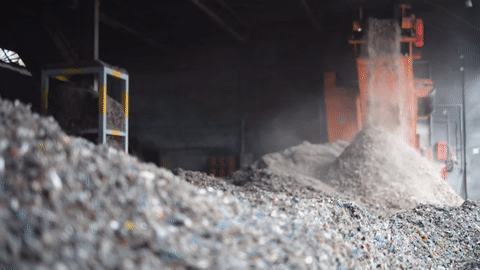
How does the mechanical-biological waste treatment (MBT) work?
Waste that cannot be recycled further is generally either used for energy (incinerated) or treated mechanically and biologically. This means that disposal companies collect household waste, MSW or commercial waste similar to household waste and transport it to a central location for waste treatment, disposal or recycling. Typically, household waste contains a high percentage of organic matter. After coarse screening, it is shredded and then divided into different fractions by screening. The coarse fraction (films, paper, hard plastics, wood, etc.) is usually used as fuel in RDF power plants because of its high calorific value. The fine fraction (organic substances), on the other hand, is usually further biologically treated. Gases produced in this way can be used for energy.

Good to know.
Member countries of the European Union recycled about half of their municipal waste in 2021.
PowerLine: universal shredder with single-shaft technology for pre- or post-shredding
Performance that pays off. The PowerLine 3000 takes on any form of waste, even contaminated materials. Ideal as a secondary shredder in multi-stage plants: After sorting out materials that are not suitable for RDF, the pre-shredded material can be optimally processed in the secondary shredder. Can be equipped with hydraulic drive, direct drive or power belt drive.
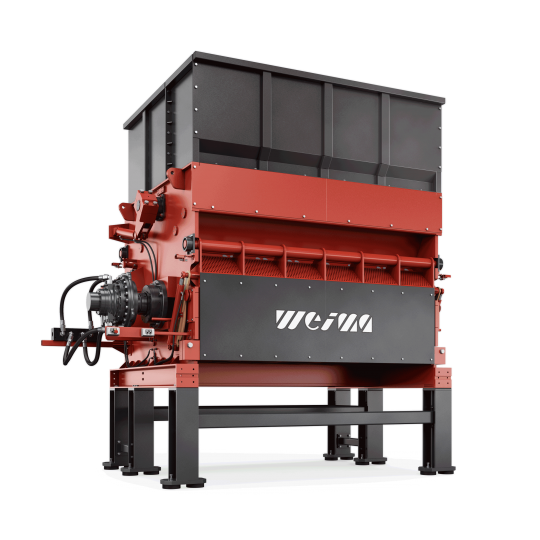
WEIMA PowerLine shredder
FineCut: High-throughput secondary shredder for RDF production
Smallest particle sizes, best sales opportunities. The FineCut is the ideal secondary shredder for multi-stage plants. Thanks to high speed, extreme throughputs are realized. The fine particle sizes of the shredded material perfectly meet the increasing demand for ever higher RDF qualities.

WEIMA FineCut waste shredder
This combo is only available at WEIMA
Heavy duty machine designs
for long service life
Easy maintenance
for minimal down times
Various drive options
for maximum throughput
Fast service and support
for highest customer satisfaction
Everything from one source
machines, conveying technology, metal detection, support, spare and wear parts for customized solutions
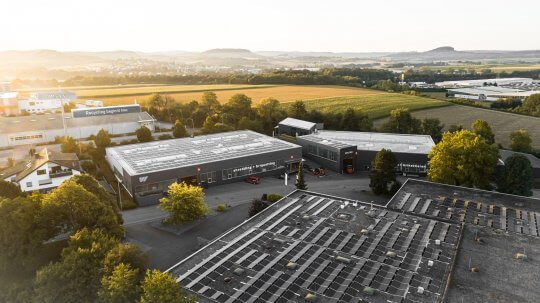
WEIMA headquarters Ilsfeld (Germany)
Convince yourself
The WEIMA showroom is equipped with shredding and compacting machines of all sizes and technologies. This allows us to simulate your application as realistically as possible. You have the possibility to send us your material or to visit us directly in Ilsfeld. From our gallery you have the best view directly into the cutting room. This allows you to observe the shredding process live.
Request appointment now




